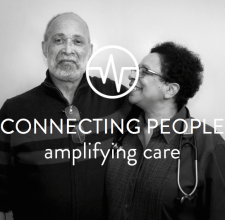Not by a long shot if patients have anything to say about it.
Turns out that while most of us (90%) would like be able to make a doctor’s appointment and check lab results online….85% of us also still want the option of be able to talk to our physician face-to-face. These are the finding from a recent 2012 study conducted by Accenture.
Not by a long shot if patients have anything to say about it.
Turns out that while most of us (90%) would like be able to make a doctor’s appointment and check lab results online….85% of us also still want the option of be able to talk to our physician face-to-face. These are the finding from a recent 2012 study conducted by Accenture.
These finding will no doubt come as a surprise to many of those high tech newcomers to health care looking to make physician and trips to the doctor’s office a thing of the past with some new “killer health app.” You wouldn’t believe how little many of these software and app developers know about how health care works. Then again, if you have looked at some of the EMRs, PHRs, and patient portals solutions being hyped out there maybe you could believe it.
What is significant about the finding cited above is that patients at least get it. They understand the value of a having a relationship with a knowledgeable physician or similar health care provider. In spite of, and for some, because of the plethora of health information outlets on the web people want to know that they always have access to your family doc when the chips are down.
What newbie software engineers and smart phone app developers fail to understand is that health care is fundamentally about social interactions…not technical data transactions like depositing a check or making an airline reservation.
Here’s what I mean…based upon some 20+ years working in health care:
- From the get go…going back to Hippocrates…health and health care delivery has been about the relationships between people starting with the physician-patient.relationship.
- The most important diagnostic tool a physician has at their disposal is not a smart phone…but their ability to talk with and observe patients verbal and non-verbal behavior.
- “Talk” is not only how physicians diagnose problems and recommend the appropriate treatments…talk is also how patients are able to engage in the health care. Perhaps the most overlooked aspect of talk (and touch) during the medical exam is the therapeutic benefits patients derive from being able to express heart-felt fears and concerns to someone who hopefully cares.
The unfulfilled promises of so much of health information technology today (like Electronic Medical Records, Personal Health Records, and Patient Portals), with some notable exceptions like Kaiser, Group Health and the VA, can be traced directly back to developers not understanding that their job is to enable physician-patient relationships not get in their way or try and replace them.
I don’t consider myself a Luddite when it comes to health information technology…nor would I put most physicians in this category. The health industry is going through massive change, and unfortunately in such time, there is also a lot of false starts and waste that comes from ill conceived HIT solutions. I suspect that tech vendors that take the time to learn the business that is health care, and commit themselves to improving the physician-patient relationship…will do just fine.
The Take Away…
The physician-patient relationship remains paramount for us patients. Yes there are problems…yes physicians and patient need to learn to do a better job communicating with one another. But when everything is said and done…when the chips are down…we don’t want to be forced to diagnose and treat ourselves. We want to be able to see and talk with our doctor when we want. And honoring the patient’s perspective after all is what patient-centered care is all about right?
And oh by the way…we still want the convenience of being able to go online to schedule an appointment and check out lab tests.
That’s my opinion…what’s yours?
Sources:






